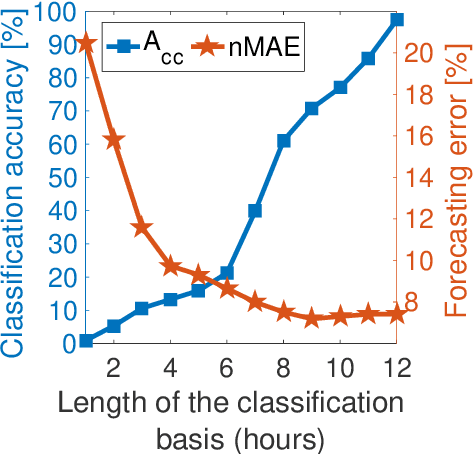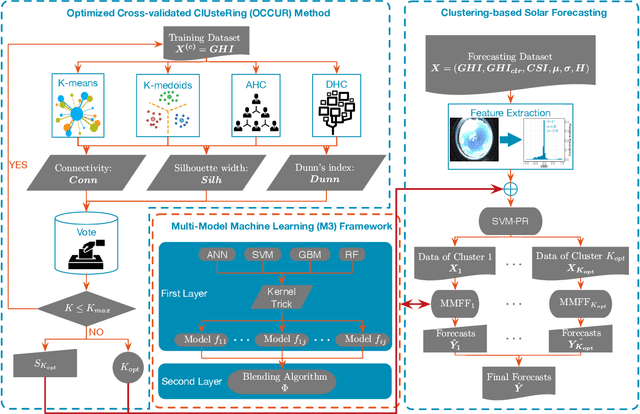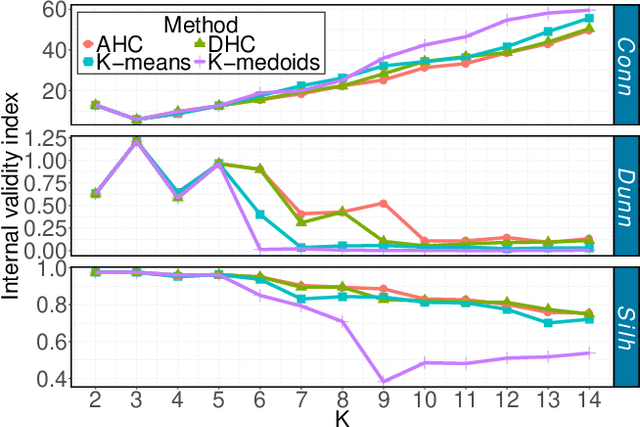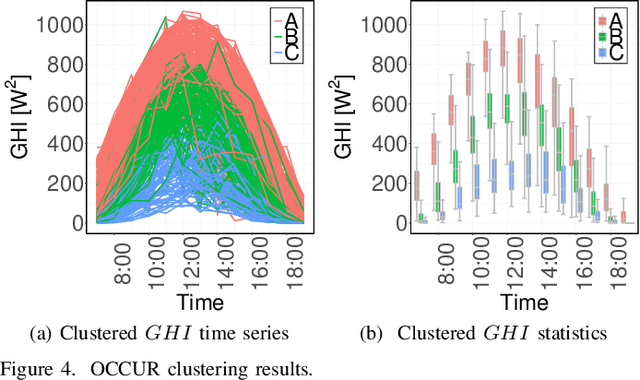An Unsupervised Clustering-Based Short-Term Solar Forecasting Methodology Using Multi-Model Machine Learning Blending
Paper and Code
May 10, 2018



Solar forecasting accuracy is affected by weather conditions, and weather awareness forecasting models are expected to improve the performance. However, it may not be available and reliable to classify different forecasting tasks by using only meteorological weather categorization. In this paper, an unsupervised clustering-based (UC-based) solar forecasting methodology is developed for short-term (1-hour-ahead) global horizontal irradiance (GHI) forecasting. This methodology consists of three parts: GHI time series unsupervised clustering, pattern recognition, and UC-based forecasting. The daily GHI time series is first clustered by an Optimized Cross-validated ClUsteRing (OCCUR) method, which determines the optimal number of clusters and best clustering results. Then, support vector machine pattern recognition (SVM-PR) is adopted to recognize the category of a certain day using the first few hours' data in the forecasting stage. GHI forecasts are generated by the most suitable models in different clusters, which are built by a two-layer Machine learning based Multi-Model (M3) forecasting framework. The developed UC-based methodology is validated by using 1-year of data with six solar features. Numerical results show that (i) UC-based models outperform non-UC (all-in-one) models with the same M3 architecture by approximately 20%; (ii) M3-based models also outperform the single-algorithm machine learning (SAML) models by approximately 20%.
 Add to Chrome
Add to Chrome Add to Firefox
Add to Firefox Add to Edge
Add to Edge